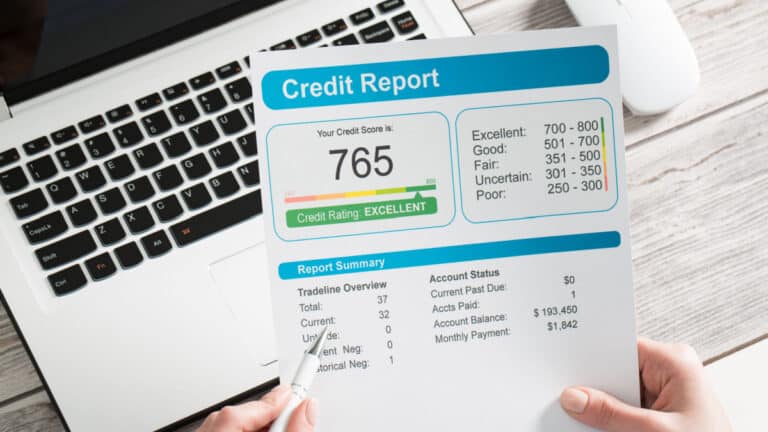What Is a Charge Off 2024

What is a charge off? A charge off is when a lender declares that a debt is not likely to be paid and writes it off as a loss. This typically occurs when a borrower has missed several payments, and the lender has exhausted all efforts to collect the debt. The charge off will negatively impact the borrower’s credit score. It can remain on their credit report for up to seven years. Borrowers need to work with their lenders to develop a repayment plan and avoid the negative consequences of a charge off.
How Does a Charge Off Happen?
Here are the steps on how a charge off happens:
- You miss a payment on a debt.
- The creditor sends you a warning letter.
- You continue to miss payments.
- The creditor reports the missed payments to the credit bureaus.
- The creditor declares the debt as a charge off.
The specific timeline for a charge off can vary depending on the creditor’s policies. However, it typically takes 6 to 12 months of missed payments before a debt is charged off.
Effects of a Charge Off on Your Credit Score
A charge off can lower your score by 100 points or more. A charge off will remain on your credit report for seven years, even if you pay it off. Be prepared for an uphill battle to receive approval on new debt or credit.
Here are some of the effects of a charge off on your credit score:
- If a charge off appears on your credit report, it can significantly impact your credit score. This negative mark is considered a severe issue, and as a result, your score may decrease by a substantial amount.
- A charge off on your credit report can make getting approved for loans and credit cards difficult. Lenders may view it as a red flag and hesitate to extend your credit.
- You may have to pay higher interest rates. If you can get approved for credit, you may have to pay higher interest rates because of your charge off.
- You may have to pay late fees and collection fees. If you do not pay the debt in full, you may have to pay late and collection fees.
- The creditor may sue you. If you do not pay the debt, the creditor may sue you.
What to do if you Have a Charge Off
Here are some things you can do if you have a charge off on your credit report:
- Make all of your other payments on time. You are demonstrating to lenders that you can make payments on your debts.
- Get a secured credit card. Consider a secured credit card if you’re looking to improve your credit score. By putting down a deposit into a savings account as collateral, you can use this type of card to your advantage. Utilizing the card responsibly and making timely payments can help you rebuild your credit history and ultimately enhance your credit score.
- Dispute the charge off. If you believe the charge off is inaccurate, you can dispute it with the credit bureaus.
- Pay off the debt. Paying off the debt will remove the charge off from your credit report.
- Consider a debt settlement program. A debt settlement program is a way to negotiate with creditors to pay less than the total amount of your debt. However, debt settlement programs can damage your credit score even further, so weigh the benefits and risks before deciding if this is how you want to proceed.
- Consider bankruptcy. Bankruptcy is a legal process that can help you to discharge your debts. However, bankruptcy can hurt your credit score for many years, so speak with an attorney to understand your options before filing for bankruptcy.
It is important to remember that it takes time to rebuild your credit after a charge off. Be patient and consistent with your payments; your credit score will eventually improve.
Check out these additional tips for rebuilding your credit after a charge off:
- Be patient. It takes time to rebuild your credit after a charge off.
- Be consistent. Make all your payments on time, even if it is just the minimum payment.
- Get a secured credit card. A secured credit card can help you to rebuild your credit history.
- Avoid opening new accounts. Opening new accounts can lower your credit score.
- Pay down your debt. Paying down your debt will improve your credit score.
- Check your credit report regularly. Check your credit report regularly to make sure there are no errors.
Different Types of Charge Offs
There are two main types of charge offs: voluntary and involuntary.
- Voluntary charge off is when a borrower decides to stop making payments on a debt. This can happen for various reasons, such as financial hardship or not wanting to pay the debt.
- Involuntary charge off is when a creditor writes off a debt as a loss. This can happen if the borrower has missed payments for a specific time, typically 6 to 12 months.
Involuntary charge offs can also be further classified into:
- Retail charge off: When a borrower fails to make payments on a retail account, such as a credit card or a department store account.
- Bankruptcy charge off: When a borrower files for bankruptcy and the debt is discharged.
- Collection charge off: When a debt is turned over to a collection agency.
The type of charge off can affect your credit report and your credit score. Voluntary charge-offs can be viewed more favorably than involuntary charge offs, but both can hurt your credit score.
Here are some of the things to keep in mind about the different types of charge-offs:
- A voluntary charge off can be removed from your credit report after seven years.
- An involuntary charge off can be removed from your credit report after seven years. However, it may take longer if the debt is discharged in bankruptcy.
- A bankruptcy charge off can remain on your credit report for ten years.
- A collection charge off can remain on your credit report for seven years.
Ways to Dispute a Charge Off
There are a few different ways to dispute a charge off. You can:
- Dispute the charge off directly with the creditor. This is the first step you should take. Write a letter to the creditor explaining why you believe the charge off is inaccurate. Be sure to include any documentation that supports your claim, such as a copy of your payment history or a letter from your lawyer.
- Dispute the charge off with the credit bureaus. If the creditor does not remove the charge off from your credit report, you can dispute it with the credit bureaus. Every credit bureau has a specific procedure for challenging any incorrect data on your credit report. You can quickly locate this information on their websites or by phone contacting their customer service team.
- File a complaint with the Consumer Financial Protection Bureau (CFPB). As a financial fraud or abuse victim, you have the right to receive help. The CFPB is a government agency committed to protecting consumers like you. You must file a complaint with them online or call their toll-free number. Take your time in seeking assistance; act now.
If you dispute a charge off, the creditor or credit bureau has 30 days to investigate your claim. If they find the charge off accurate, they will not remove it from your credit report. However, they will remove the charge off from your credit report if it needs to be corrected.
It is important to note that disputing a charge off can have negative consequences. Suppose the creditor or credit bureau finds that your claim is frivolous. In that case, they may report you to the credit bureaus as a negative account. This can further damage your credit score.
If you are considering disputing a charge off, speak with a credit expert to learn more about your options and the potential consequences.
Removing a Charge Off From Your Credit Report
- Paying the debt in full. If you pay the debt in full, the creditor may agree to remove the charge off from your credit report. However, this is only sometimes possible, and better options for your financial situation may exist.
- Negotiating a settlement. You agree to pay a portion of the debt to remove the charge off from your credit report (negotiate a settlement). This is a good option if you cannot fully pay the debt.
- Disputing the charge off. If you believe the charge off is inaccurate, you can dispute it with the credit bureaus. If the credit bureaus find the charge off incorrect, they will remove it from your credit report.
- Waiting for the charge off to fall off your credit report. Charge offs typically remain on your credit report for seven years. After seven years, the charge off will automatically fall off your credit report, even if you have not paid it.
- The importance of rebuilding your credit after a charge off
Here are some of the reasons why to rebuild your credit after a charge off:
- To improve your chances of getting approved for loans and credit cards. When considering your loan or credit card eligibility, lenders typically evaluate your credit score. Better loan terms and a higher chance of approval directly correlate with a higher credit score.
- To get a lower interest rate on loans and credit cards. The interest rate you are offered on a loan or credit card will be based on your credit score. Lower interest rates and potential savings in the future can happen with a good credit score.
- To be able to rent an apartment or house. Some landlords and property managers will check your credit score before they approve you to rent an apartment or house. The approval rate is higher if your score trends in the right direction.
- To qualify for a job. Employers may analyze your credit score before they hire you. A good credit score can show that you are responsible and reliable, making you more likely to be hired.
You can use a credit repair company to help with a charge off. However, choosing a legitimate company with a good track record of success is important. There are many scams out there, so it is important to research before signing up with any company.
A credit repair company can help dispute inaccurate information on your credit report, including a charge off. They can also negotiate with creditors to get them to remove the charge from your report. There are no guarantees of success from a credit repair company.
Keep the following in mind:
- Get quotes from several companies before you make a decision.
- Read reviews of the companies you are considering.
- Ensure the company is a National Association of Consumer Bankruptcy Attorneys (NACBA) member.
- Get everything in writing, including the company’s fees and services.
- Be wary of any company that promises to remove all negative information from your credit report or charges upfront fees.
Make sure to evaluate all your options and take steps to resolve any charge off issues you may have. It will help for your future financial health.
Ammar has started several online businesses and is a blogger who loves providing quality content to help others. He is involved with affiliate marketing, domain names, NFTs, and cryptocurrencies. Check out my blog if you want to learn more about these areas and business in general.






